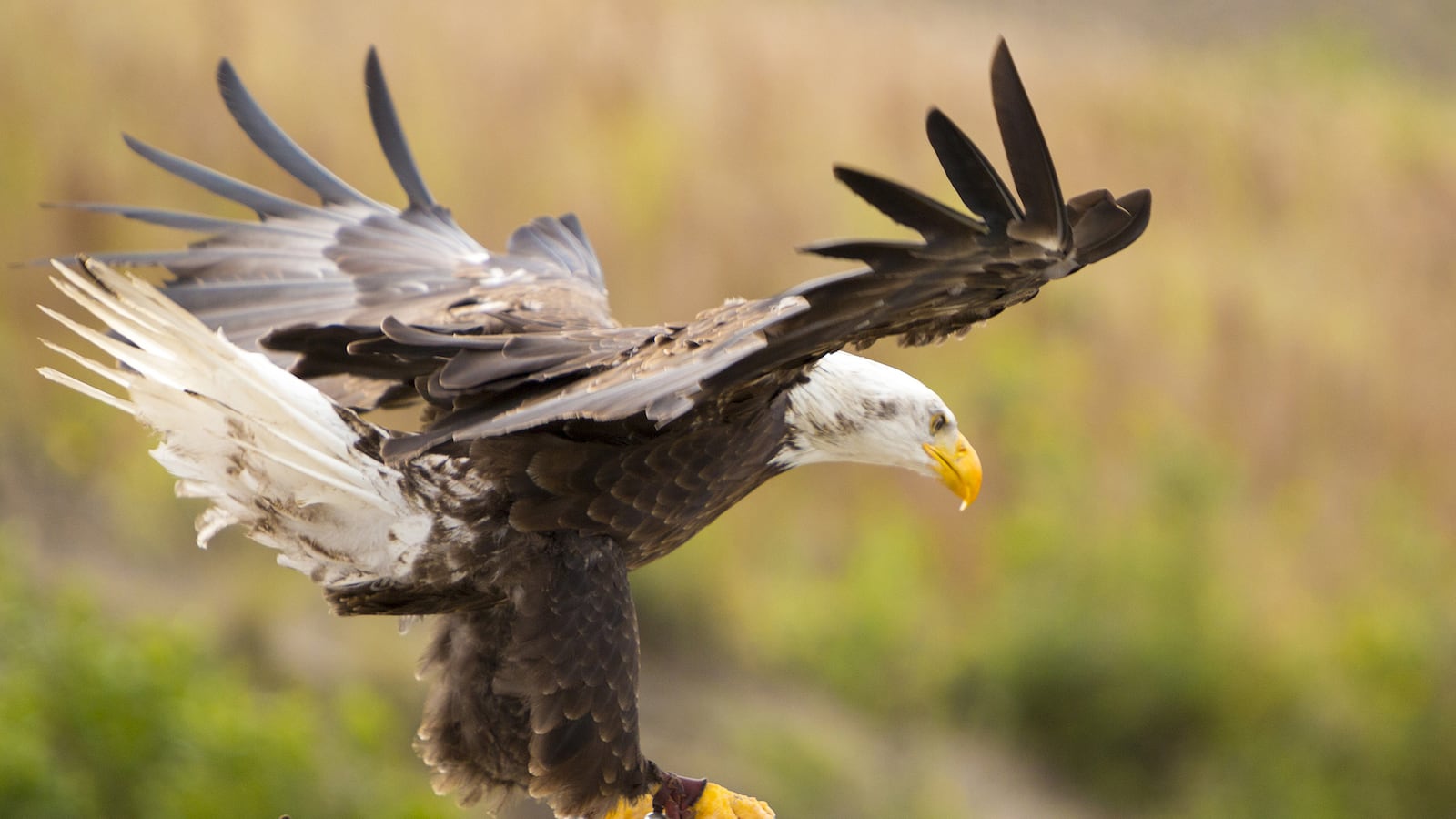Of all the distinctions bald eagles have earned, drone hunter is a strange one. But thanks to a Dutch birds of prey company, it’s one that seems here to stay.
Guard From Above bills itself as the world’s first company to train birds of prey on how to “intercept” drones. Together with the Dutch police, the Hague-based company is hard at work on an “innovative” project that would rely on bald eagles to police the skies.
The idea comes amid growing fears that recreational drones pose a threat to safety—fears that are bolstered by dozens of close calls and injuries across the globe. One of the most often cited is a near-accident from last year, when a drone came within a wingpsan of a Boeing 777 that was taking off from Heathrow.
Some theorize that until a recreational drone causes a fatality, experts won’t take the issue of security of safety seriously. It’s a scenario that Guard From Above co-founder and CEO Sjoerd Hoogendoorn hopes to prevent. He says his idea is a simple solution to the difficult problem of a pilotless aircraft going awry.
“For years, the government has been looking for ways to counter the undesirable use of drones. Sometimes a low-tech solution for a high-tech problem is more obvious than it seems,” said Hoogendoorn in a press release. “This is the case with our specially trained birds of prey. By using these birds’ animal instincts, we can offer an effective solution.”
Hoogendoorn’s bio lists him as an expert in the security sector and an entrepreneur who lives by the motto: “What if it actually is possible?” The company’s co-founder, Ben de Keijzer, is less of a businessman than a bird whisperer. De Keijzer boasts 25 years of experience training birds of prey, and calls himself an “international expert.”
“I have had a passion for birds of prey since I was very young,” de Keijzer says. After years spent as a handler, the bird lover turned his attention to security. Drone catching, in his opinion, is a natural activity for birds of prey. “They use their strength and speed when they hunt: they are the masters of the air,” he says. “By using our special training methods, we can teach them to intercept drones.”
To demonstrate the success of the program, Guard from Above invited reporters to attend an outdoor training session on Monday alongside the Dutch police, who have expressed interest in using it. In a video of the scene from BBC, a female bird named Hunter sits perched on the arm of a trainer before launching into the sky and nabbing a drone with her talons.
Referred to by the reporter as an “elite squad of airborne crime fighters,” it’s a role that the two founders say the birds were born to play. “It’s instinct to catch a prey,” says Hoogendoorn. “[The bird] is not interested in people, it’s not interested in other animals, it’s interested only in catching the drone.”
Animal activists, politely, beg to differ. In a piece for National Geographic titled Let’s Not Force Eagles to Fight Rogue Drones, bird activist Nicholas Lund talked to bird conservationist about the concept that drone hunting falls under the scope of a bald eagles’ “natural instinct”—a concept they call ridiculous.
“Bald eagles are not bird predators,” said president of the Raptor Conservancy of Virginia, Kent Knowles. “They eat fish and carrion…[Drone hunting] is dangerous because drones are not like anything bald eagles or other birds of prey find in nature…I don’t think they have any understanding of what drones are.”
Even if the instinct were natural, the act of catching a drone in midair is dangerous. To test just how dangerous the blades are, Mythbusters performed an experiment using a dead chicken. When held close to the chicken, the blades sliced directly through its skin—proving that drones, in the words of the experimenters, have “potential for serious harm.”
Guard From Above mentions the potential danger, but says the birds’ talons have scales that protect them “naturally” from their victims’ bites. Below that, however, they note that the Dutch Organization for Applied Scientific Research (TNO) is looking into the potential effects of drone catching on birds’ claws. “The results are not yet known,” says Guard From Above.
Whether or not eagles should be forced into the roles of drone fighters is an important question, but one that—in the absence of other options—may remain unanswered. If the Dutch police do train bald eagles to roam the skies, it will make for an interesting paradox. Drone fighting is a bizarre demand of any bird, but especially one that stands for freedom.





